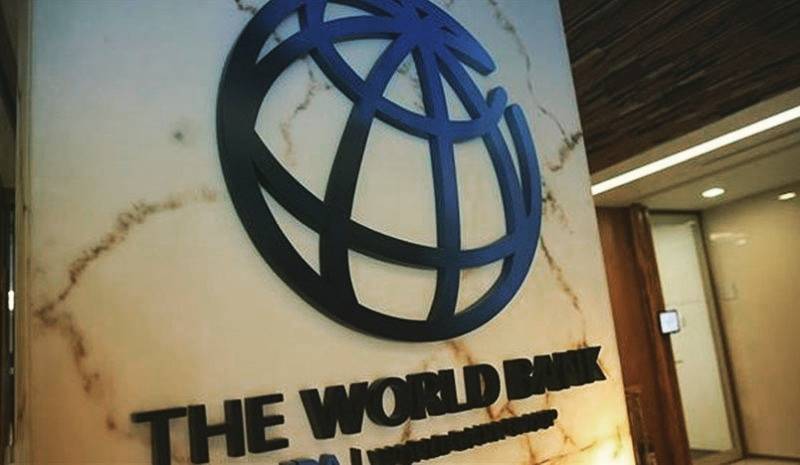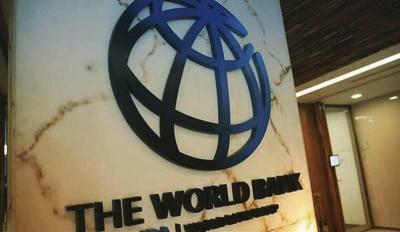A report from the World Bank's Executive Directors regarding the performance review and lessons learned for Lebanon's strategic partnership framework highlights the progress made during the financial years 2017-2022. Saroj Kumar Jha, the regional director of the World Bank’s Mashreq Department, stated that "despite early warnings, Lebanon wasted valuable time and many opportunities to adopt a path for reforming its economic and financial systems. The costs of inaction and procrastination are immense, not only on the daily lives of citizens but also on the future of the Lebanese people. Two and a half years into the crisis, Lebanon has yet to implement a comprehensive reform and recovery program, which prevents the country from sinking deeper. The continued deliberate delay in addressing the causes of the crisis poses a threat not only at the social and economic levels but also exposes the state's institutions to systemic failure, putting the fragile social peace under further stress."
On May 20, the World Bank's Executive Directors approved the performance review report and lessons learned for Lebanon's strategic partnership framework, summarizing the progress made during the financial years 2017-2022 and revising its objectives, in a context where Lebanon is witnessing one of the most severe economic and financial crises in modern history. The report extends the period of the strategic partnership framework by an additional year (during the fiscal year 2023) to bolster urgently needed social and economic recovery programs targeting the poor and most vulnerable, and to support the macroeconomic and structural reforms essential to save the country.
The World Bank report notes that during the implementation period of the partnership framework, Lebanon faced multiple overlapping crises: a severe economic and financial crisis, the COVID-19 pandemic, the Beirut port explosion, and finally a food security crisis resulting from the war in Ukraine. According to the Bank's analysis, the nominal Gross Domestic Product (GDP) plummeted from nearly $52 billion in 2019 to an expected level of $21.8 billion in 2021, recording a contraction of 58.1%. The exchange rate continued its steep decline, causing inflation rates to surge into the hundreds. These crises aggravated social hardships affecting poor and needy families more than others, widening the gap and inequality among social groups.
Amid political inaction, the unresolved crises have caused long-term damage to Lebanon's economy and society: essential public services are collapsing, unemployment rates are sharply increasing, and human capital is facing severe depletion. The private sector suffers significant obstacles due to the paralysis of the financial system. The decline in corporate productivity and revenue generation has led to widespread layoffs and bankruptcies. If the procrastination in policy reforms continues, the real GDP is expected to contract by 6.5% in 2022.
The report identifies the main obstacles to development in Lebanon, as pinpointed in the structured diagnostic study, which remain prevalent: the elite’s monopolization of power under the guise of sectarianism, and exposure to conflict and violence. These obstacles have created a weak political system and an incapable state unable to separate political conflict from its governance and authority capabilities. The management of crises reflects how much the capacities for sound governance have eroded, as well as the political paralysis created by elite dominance.
The performance review report outlines three potential scenarios through which a new political settlement could emerge: political stalemate, minimal consensus, and political shift. Each scenario imposes a different set of constraints, obstacles, and opportunities for shaping the World Bank's work program.
It pointed out that "according to previous calls, it is essential for Lebanon to accelerate the adoption of a credible plan for comprehensive and equitable recovery to achieve macroeconomic stability and expedite its implementation to avoid complete destruction of its social and economic frameworks, and halt the irrecoverable losses in human capital."
The report noted that "despite the continued deterioration of governance levels in Lebanon during the execution of the strategic partnership framework, some positive institutional points have achieved a level of transparency and accountability in the provision of government services and gained citizens' trust. Examples in this regard include Rafik Hariri University Hospital and the IMPACT platform, an information technology platform from Lebanon’s General Directorate of Internal Security Forces. In the future, building and enhancing institutional capacities will be vital, requiring timely investments, training, and financial support to bolster public administrations and achieve sustainable development."
Significant efforts are required to accelerate the agenda for reforming governance systems. This is crucial to renewing the social contract and repairing the shattered trust between citizens and the state, especially at this critical juncture. Key areas on this front include reforming the public procurement system, reforming public financial management, enhancing parliamentary financial oversight, and judicial independence.
Under these conditions, marked by a deteriorating economy and a politically uncertain environment, the performance review report updates the strategic partnership framework to make it more people-focused, with greater selectivity in a narrow range of sectors that directly benefit the poor and most needy, including refugees, and establishing the foundational elements of a reform program.
The report modifies the priority areas of the strategic partnership framework and its outcome framework. This amendment aims to strengthen responses to address the crises, mitigate their social and economic impacts, and establish the essential elements to tackle the structural challenges related to governance and the economic model. The report emphasizes that women’s rights continue to face legal, institutional, and social obstacles, reflecting alarming levels of exclusion of women from significant and vital sectors.
The performance review report has introduced a shared focus to address economic opportunities and tackle the barriers women face in labor markets, enhancing women’s entrepreneurship. This will complement ongoing programs and efforts within the context of the women's empowerment program in the Mashreq.




